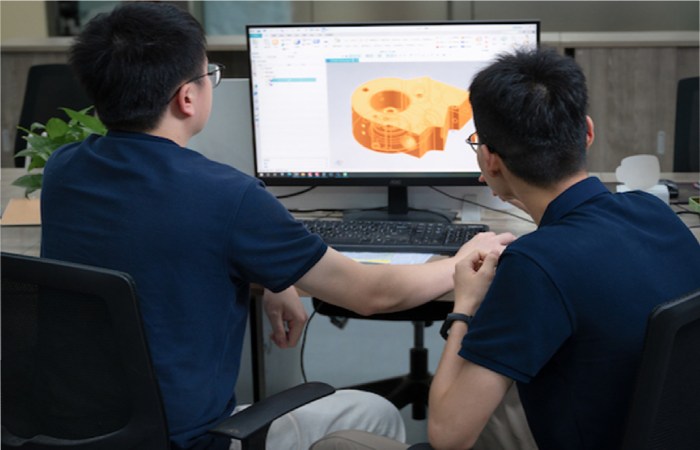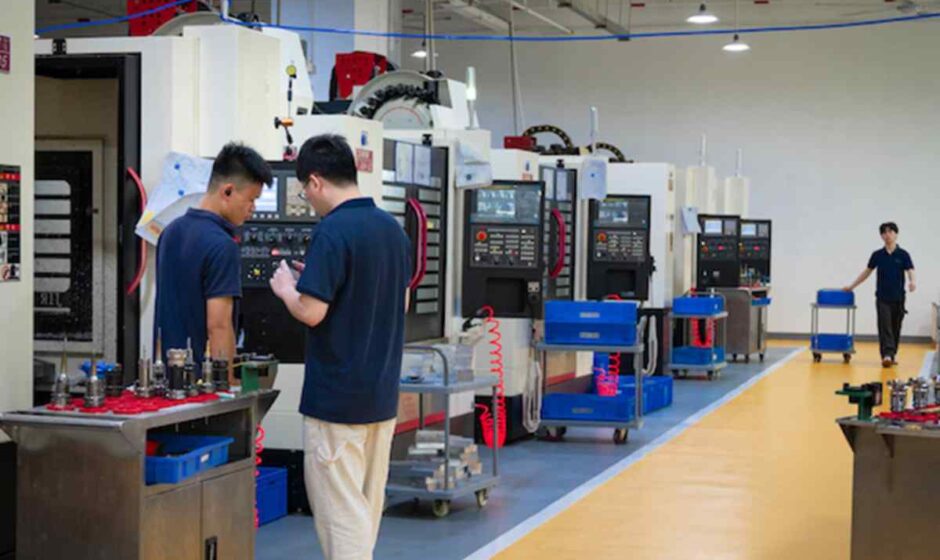Employee turnover in manufacturing is a significant challenge, impacting productivity, operational costs, and overall business performance. For companies like WayKen Manufacturing, where skilled workers play a pivotal role in maintaining high standards of precision and efficiency, retaining top talent is critical.
This article explores actionable HR strategies tailored for the manufacturing sector. From improving onboarding processes and offering competitive benefits to fostering employee engagement and career development, these strategies provide a comprehensive guide to sustaining growth in today’s competitive manufacturing landscape.
1. Prioritize Employee Well-being in Physically Demanding Roles
Most manufacturing jobs entail some level of physical strain, and CNC machining services entails a lot of standing and moving around in a repetitive manner. Some of the measures that employers in this sector can use to minimize high turnover include; provision of holidays, leave, routine physical and mental check-ups for employees.
Another is to put in place a working environment that will not cause some employees to develop strain injuries. Several check-ups, safety drills, and organizing frequently additional health promoting activities (for instance, sports days, or stress busting programs) being from time to time presented means their adherence for the health of the human capital.
Also, safety concessions can be supported by HR and be elaborated as practices that might include mandatory stretch breaks, safety bonuses, and stress management services.
2. Develop Clear Career Pathways in Manufacturing Roles
Low promotion opportunities can be another reason for turnover in manufacturing as many employees in manufacturing may be bored with their positions such as CNC operators. Promoting clear development career tracks can keep valued employees around by giving long horizons within the establishment.
Manufacturing firms can define a linear progression career path, for instance from CNC operator to setup technician, and then to positions like production supervisor or a quality assurance manager. Investing in employee growth through on-the-job training boosts motivation. That is why career advancement is realized through certifications in leadership, quality assurance, and lean manufacturing.
3. Offer Competitive and Performance-Based Compensation
Having a competitive compensation plan is a way of ensuring employees are retained in the manufacturing jobs. It is necessary for companies to review the wages normally to see if they are meeting or exceeding standard levels for attractiveness.
Also, perks allied with overtime, performance, and retention rewards at the time of record production rates will help employees to remain. Comprehensive medical insurance, pensions and opportunities to take care of the family, namely paid parental leave, and child care options will increase loyalty dramatically.
4. Implement Effective Onboarding and Ongoing Training

Initial training is crucial for retention, especially in skilled fields like CNC machining, where precision is key. Clear guidance and hands-on training from the start can greatly reduce early turnover. Such programs as job shadowing, and mentorship enable new employees to learn on the job, so they can gain essential knowledge on the job and gain confidence.
Ongoing training programs are equally crucial. They help employees refine their skills, stay updated with the latest technologies, and adapt to evolving industry standards. For example, offering workshops on advanced CNC techniques or certifications in machining can enhance employee confidence and competence, making them feel valued and invested in.
5. Focus on Improving the Work Environment and Upgrading Equipment
Improving the work environment and upgrading equipment are critical strategies for reducing turnover in the manufacturing industry. Providing a well-ventilated workshop with effective noise reduction measures can create a more comfortable and focused workspace, enhancing employee satisfaction and productivity. A clean, organized, and ergonomically designed environment demonstrates care for workers’ well-being, fostering loyalty and reducing fatigue.
Introducing modern equipment is equally important, as outdated machinery can lead to frequent breakdowns and inefficiencies that frustrate employees and disrupt workflows. By investing in advanced technology, manufacturers can streamline production processes, reduce operational bottlenecks, and provide employees with tools that are easier and safer to operate. This not only improves productivity but also signals a commitment to maintaining high standards, which motivates employees to stay.
Safety is another crucial aspect that directly impacts employee retention. Regular inspections and maintenance of machines are essential to prevent accidents and ensure smooth operations. Equipping the workplace with reliable safety measures, such as protective guards and emergency stop mechanisms, builds trust among employees, making them feel valued and secure in their roles. These efforts collectively contribute to a more positive and sustainable working environment, reducing turnover rates in manufacturing.
Conclusion
Manufacturing sector’s turnover can be effectively regulated with the help of HR management. Creating a strong and well-motivated pool of employees calls for resource commitment but the returns- reduced Emulation costs, enhanced employee satisfaction as well as increased organizational stability are some of the major gains that accrue to the implementation of the policy.
Also read: Discover the Power of Tech Yugle Com for AI Tools


